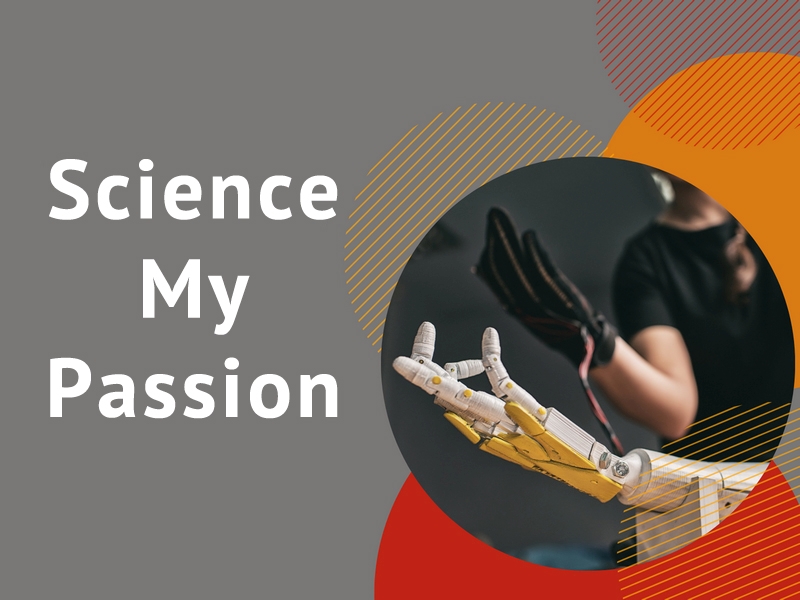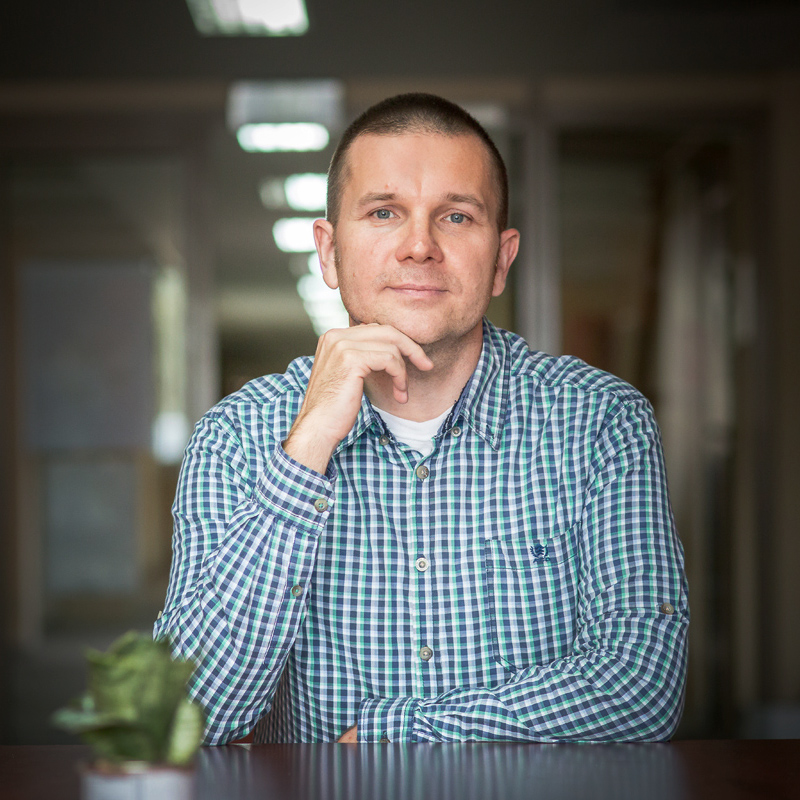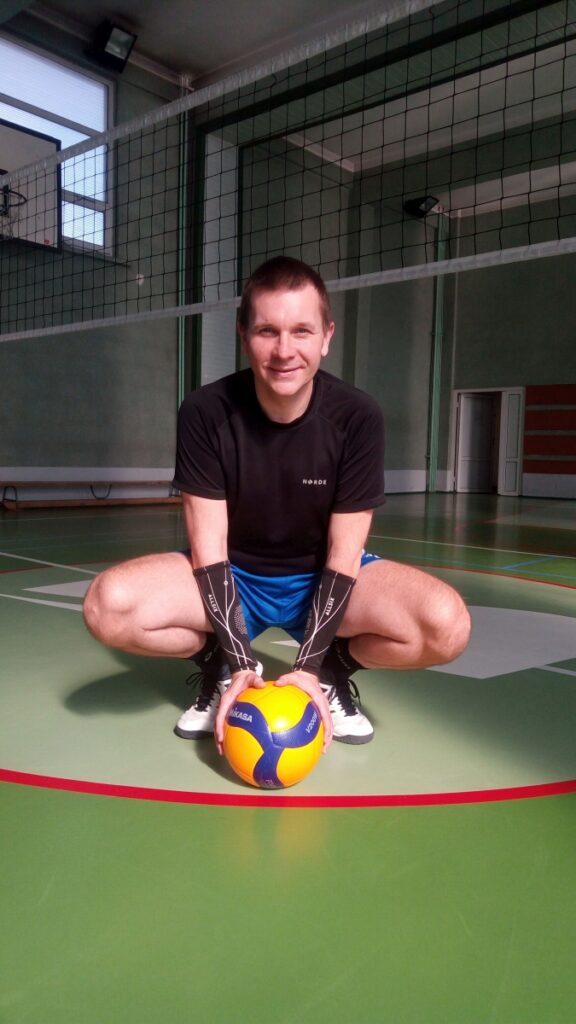Materials engineering – what exactly is it?
Materials engineering is a field of science that studies and creates various materials used in everyday objects and industry. You could say that materials engineers are people who try to understand how materials work and then use this knowledge to invent new ones and improve existing ones. Materials engineering is a fascinating field that helps us create better products and technologies that we use every day.
source: AI
SCIENCE | MY PASSION
According to the definition taken from the Polish Language Dictionary, science is complete human knowledge arranged into a system of problems, but also a set of ideas that constitute a systematic whole and comprise a specific research field.
Science is also activity: learning and teaching. Please read the “Science | My Passion” series, where our researchers present their work and show that science and research process can really draw us in.
JACEK KRAWCZYK PhD, DSc
Institute of Materials Engineering
…Passion is not a narrow corridor of interests! Passion is created by various fascinations, which later tie together like a neural network….
Multiplicity of interests
It all began in primary school, although it was not entirely thoughtful and deliberate at that time… By ‘all’, I mean my interest in science and technology. It was no passion at first, obviously—more of curiosity or a desire to discover the world from the side of exact sciences. I was fascinated by practical and technical classes served within the then curriculum and bewitched by chemistry; with the latter, I experimented so much that it ended up in a certain reaction, by no means a chemical one but my teacher’s, which—in turn—resulted in me being a finalist of the municipal science ‘Olympiad’ in chemistry. At the end of my 8-year journey in primary education, I happened to join an electronics research group; this, on the other hand, sparked my scientific enthusiasm for real, and I decided to continue my secondary education in a school specialising in electronics. It seemed to be the ideal (and yes, I know, nothing is ever ideal) solution for the future: a combination of a hobby with the promising profession of an industrial automation technician. I pursued this goal for five years, during which more and more passions emerged that were not necessarily connected with science. I will not mention them—however—bearing in mind that most readers have probably gone or are going through a period of teenage solar storms and know exactly what I am talking about. As for the sparks, I got into new things such as rail, road and air transport. And it was transport that could become my future major, especially since I was about to choose my studies. But before that, I had two tests to pass: technician qualifications and the Matura exam (passed under the old system); the latter gave me even more reasons to carefully consider the major I wanted to pursue because my results in Polish were better than in maths. Let alone my maths teacher who encouraged me to take up studies in exact sciences using the words ‘…you won’t make it anyway.’
Decision
All the passions I had stuck in my mind back then, and my drive to swim against the main current and being indifferent to unjustified opinions—which lasts to this day—advised me to make my choice: exact sciences it was, but materials science with IT instead of transport. I decided that in this way I would manage to combine my interest in electronics, computer science and transport; all of these fields involve and require modern materials, after all. My choice was quite unorthodox – an engineer-oriented major at a university; I expected to salvage a tiny particle of myself devoted to humanities. A passion has been invented instead.
Doing science
Nonetheless, my research topics have been changing. I dealt with semiconductors for electronics when preparing my Master’s thesis; I worked on composites based on compounds that create quasi-crystalline phases, which can be used in the automotive industry as thermal barrier coatings in braking systems. My current interests revolve around monocrystalline superalloys; these are used, for instance, to produce turbine blades for jet engines operating in hundreds of planes that fly above our heads every day. I have discovered that passion does not have to be a narrow corridor of interests; on the contrary, it can be created by many fascinations interconnected with each other as if a neural network. Thanks to my scientific passion, I have met many wonderful people who have been expanding it to some extent. I am talking about people of science—e.g. my supervisors, collaborators, friends—and colleagues from companies working in industries related to my scientific activity, e.g. metallurgists, designers, constructors, and even bus drivers, train drivers and aeroplane pilots, who perform their profession with a passion so contagious, it spurs others to action. I believe the only recipe to do one’s job effectively and flawlessly may be to kick off each and every day with joy and curiosity. And if we can provide for ourselves and our family at the same time, then we can feel fulfilled in life… I happen to be that lucky devil.
I must be honest with you, however. Science is not the only set of passions I have. There are more, and the biggest one seems to be volleyball. How come this very sport has become my passion? No clue, and why even bother to think about it? For me, it is enough that I cannot live without it and enjoy every form of it, both being active on the court and a spectator in the stadiums or in front of my TV. A week without volleyball is a week wasted. I feel incomplete, as if I am missing something vital that helps me grow not only physically but also intellectually and soothes my mind. If you play yourselves, you probably know what I am talking about. Healthy competition and the joy of winning release the endorphins we pretty much often lack. I experienced that with my friends from the Institute of Materials Engineering when we played in a volleyball tournament and won the USil Rector’s Cup.
A recipe for happiness
Truth be told, all of us have different passions. Some may be related to our work, others we do only for fun or to have a sense of accomplishing something important from our point of view. There are also those helping us learn and pursue science, thereby contributing to the development of humanity. Last but not least, there are a few exclusive to our inner circle or ourselves. Nevertheless, all of them are equally important, so let’s not be afraid to pursue them and not be ashamed of them. Thanks to them, we can hone our skills and grow. Isn’t that the point, after all?








